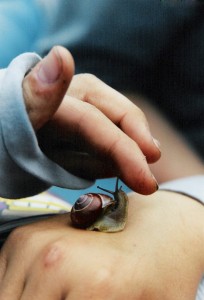 Spend enough time on the internet and you’ll spot one. They tend to sprout in the comments beneath articles like little text cabbages:
Spend enough time on the internet and you’ll spot one. They tend to sprout in the comments beneath articles like little text cabbages:
tl;dr
tl;dr
tl;dr
Unpack them and you’ll find an accusation: “too long; didn’t read.”
This isn’t some hot new trend I’m cluing you into: tl;dr hasn’t been de rigeur since it became Urban Dictionary’s word of the day in 2005. Unlike most slang of the moment, however, over the past seven years, it has proliferated. Its enduring popularity and ubiquity is a testament to the fact that this concise little construction calls out what might be the fundamental problem of the internet age. As such, tl;dr is the battle cry of the internet generation. And the concise way it encapsulates the problem might also be a hint to its ultimate solution.






